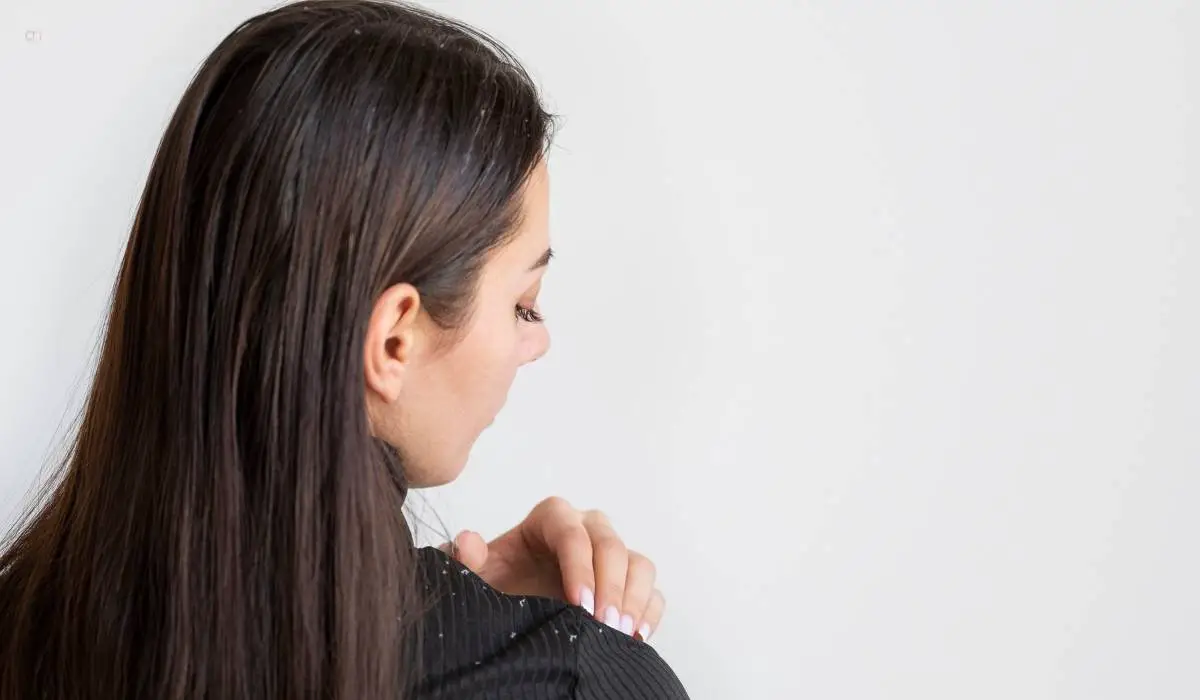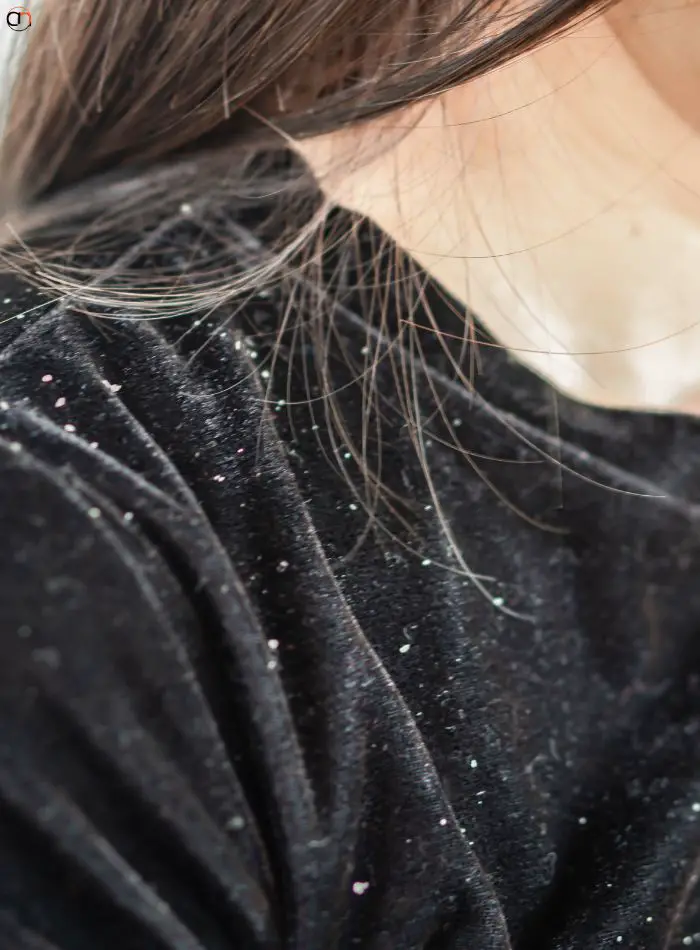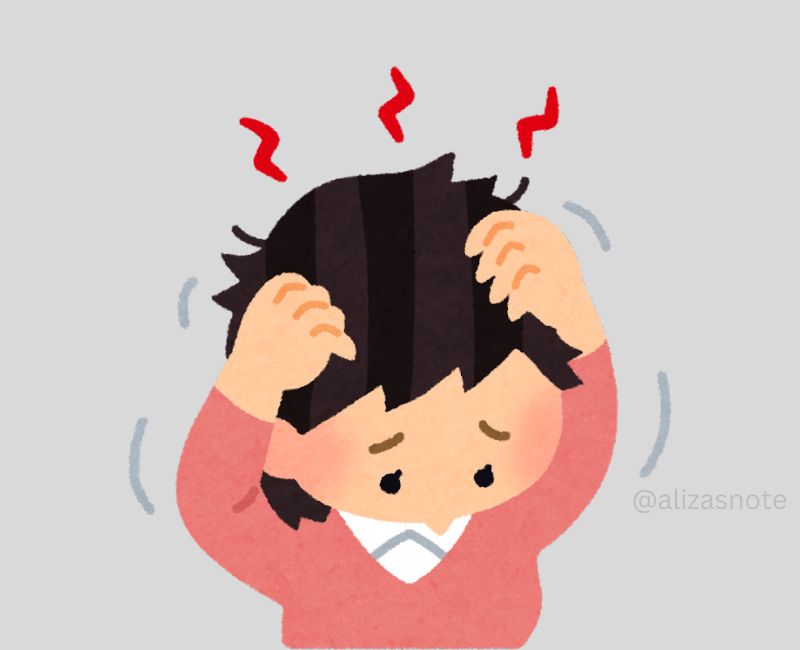How To Avoid Dandruff In Winter Naturally

Winter’s chilly air and dry indoor heating can wreak havoc on your scalp, often making dandruff worse.
The combination of lower humidity and cold weather can leave your scalp dry, flaky, and irritated.
But don’t worry – you don’t need to rely on harsh chemicals to keep dandruff at bay.
There are plenty of natural, gentle remedies to nourish your scalp and prevent those annoying flakes.
Get how to avoid dandruff in winter naturally and enjoy a flake-free, hydrated scalp throughout the colder months.
Causes of Winter Dandruff:
Winter can make dandruff more troublesome due to a combination of environmental and lifestyle factors. The colder months often lead to dry, flaky scalps, which can result in visible dandruff. Here’s a breakdown of the main causes of dandruff during winter:
1. Cold Air and Low Humidity
As temperatures drop in winter, the air becomes drier, which directly affects your scalp. Low humidity strips moisture from your skin, leaving it dry and prone to flaking. When your scalp loses hydration, it becomes more likely to shed dead skin cells, leading to the white flakes commonly associated with dandruff.
2. Indoor Heating
While indoor heating keeps you warm, it also dries out the air in your home or office. This lack of moisture can sap the natural oils from your scalp, making it more vulnerable to dryness and irritation. As a result, the skin on your scalp may become flaky, triggering dandruff.
3. Washing Hair Too Often
During winter, many people wash their hair more frequently to combat oil buildup or greasy scalp. However, washing your hair too often can strip away the natural oils that keep your scalp moisturized. Without this protective layer, your scalp becomes dry and irritated, leading to dandruff. Over-washing can also disrupt your scalp’s natural balance, making it more susceptible to flakes.
4. Harsh Hair Care Products
Cold weather often prompts people to switch to heavier hair care products, but some shampoos and conditioners—especially those containing sulfates or alcohol—can be drying. These products may further dehydrate your scalp, aggravating dandruff. Additionally, using too much styling product can create buildup, clogging your pores and contributing to flakes.
5. Reduced Sunlight and Vitamin D
In winter, reduced sunlight means less exposure to UV rays, which can affect your body’s production of vitamin D. This deficiency can lead to skin issues, including dandruff. Vitamin D plays a crucial role in maintaining skin health, and a lack of it can lead to scalp dryness and irritation.
6. Stress and Diet Changes
Winter often brings additional stress, from holiday pressures to seasonal affective disorder (SAD). Stress is a known trigger for dandruff because it can disrupt your scalp’s oil production and lead to inflammation. Additionally, winter diets tend to be heavier in comfort foods, which may lack the nutrients necessary for healthy skin and hair, contributing to dryness and flakes.
Read Next: 10 Things To Avoid Dandruff
7. Malassezia Fungal Growth
The naturally occurring fungus Malassezia thrives on the scalp, but in dry, winter conditions, it can overgrow. This imbalance causes irritation and triggers dandruff. While cold weather doesn’t directly cause fungal growth, it creates an environment where this fungus can thrive and worsen dandruff.
8. Tight Hats and Scarves
Wearing hats and scarves is essential for staying warm, but they can sometimes make dandruff worse. Non-breathable materials can trap sweat and heat against the scalp, creating an ideal environment for bacterial and fungal growth. Additionally, the friction caused by hats can irritate the scalp, leading to dryness and flakiness.
How to avoid dandruff in winter naturally:
The colder months bring a host of scalp issues, and one of the most common is dandruff. Dry air, indoor heating, and harsh weather can strip moisture from your scalp, leading to flakes, itching, and irritation. Fortunately, you don’t have to rely on harsh chemicals to prevent dandruff. With a few natural remedies and adjustments to your hair care routine, you can keep your scalp healthy and flake-free all winter. Here are some effective tips to help how to avoid dandruff in winter naturally
1. Moisturize Your Scalp with Natural Oils
To combat the dryness that causes winter dandruff, keeping your scalp well-moisturized is key. Natural oils provide hydration and nourishment, helping to restore moisture and reduce flakiness.
- Coconut oil: This oil is rich in fatty acids, which deeply hydrate the scalp while also offering antifungal properties to fight dandruff.
- Olive oil: Packed with antioxidants and vitamins, olive oil helps lock in moisture and soothes dry, irritated scalps.
- Argan oil: A lightweight, non-greasy option that nourishes and balances oil production, preventing dryness and flakiness.
How to use: Warm up a small amount of oil and massage it into your scalp for about 10 minutes. Leave it on for at least 30 minutes (or overnight) before washing your hair. This will help lock in moisture and protect your scalp from the winter elements.
2. Choose a Gentle, Hydrating Shampoo
During winter, it’s essential to choose hair care products that nourish rather than strip your scalp’s natural oils. Opt for sulfate-free shampoos that hydrate and soothe the scalp without causing further dryness.
Look for shampoos containing:
- Aloe vera: A natural moisturizer that calms irritated skin and hydrates the scalp.
- Tea tree oil: Known for its antifungal properties, it helps maintain a healthy scalp and prevents dandruff.
- Shea butter: An excellent moisturizer that prevents dryness and adds shine to your hair.
Tip: Aim to wash your hair 2-3 times a week instead of daily to prevent over-washing, which can strip the scalp of its natural oils.
3. Exfoliate Your Scalp with Natural Scrubs
Exfoliating your scalp helps remove dead skin cells and product buildup, both of which can contribute to dandruff. Regular exfoliation helps keep your scalp clean and flake-free.
- Brown sugar scrub: Mix brown sugar with coconut oil or olive oil for a gentle exfoliant that removes flakes without irritating the skin.
- Baking soda scrub: A mild, natural exfoliant that balances the scalp’s pH and removes buildup.
How to use: Gently massage the scrub into your scalp using circular motions for about 2-3 minutes, then rinse thoroughly. Use this scrub once a week to keep your scalp fresh and free from flakes.
4. Stay Hydrated and Eat a Nutrient-Rich Diet
Proper hydration is crucial for a healthy scalp. During winter, the dry air can lead to dehydration, so it’s important to drink plenty of water to keep your scalp moisturized from the inside out.
Diet tips:
- Omega-3 fatty acids: Foods like salmon, walnuts, and flaxseeds help keep your skin and scalp hydrated.
- Zinc-rich foods: Zinc plays a vital role in scalp health and helps reduce dandruff. Include foods like pumpkin seeds, chickpeas, and lentils in your diet.
- Vitamin D: Since sun exposure is limited in winter, ensure you get enough vitamin D through foods like eggs, fortified milk, or supplements to support scalp health.
5. Use a Humidifier to Add Moisture to the Air
Indoor heating can dry out the air and make your scalp more prone to flaking. Using a humidifier can help restore moisture to your home, preventing your scalp from becoming excessively dry.
Place a humidifier in your bedroom or living room, especially during the night, to maintain moisture levels in the air and keep your scalp hydrated while you sleep.
6. Avoid Over-Washing and Excessive Heat Styling
Washing your hair too frequently can strip it of its natural oils, leading to dryness and irritation. Try to reduce hair washing to 2-3 times a week to prevent this.
Excessive heat styling can also damage your scalp and hair, leaving it dry and flaky. If you must use heat, always apply a heat protectant spray to prevent moisture loss, and avoid high heat settings.
7. Protect Your Scalp from Cold Weather
When braving the winter chill, it’s important to protect your scalp from harsh winds and frigid temperatures. Wearing a soft hat or scarf can help shield your scalp from the cold, preventing dryness and irritation.
Choose hats made from natural, breathable fabrics like cotton or silk, as synthetic materials can trap moisture and cause scalp irritation.
8. Manage Stress
Stress can trigger or worsen dandruff, as it disrupts the scalp’s oil production and causes inflammation. Winter can often bring added stress, so practicing relaxation techniques like meditation, deep breathing, or yoga can help keep dandruff at bay.
Note: Winter dandruff is a common problem, but with the right natural remedies, you can keep your scalp healthy and flake-free throughout the season. Implementing these simple, natural tips will help ensure your scalp remains nourished and comfortable all winter long.
Last Call:
- Winter can worsen dandruff due to the dry air, indoor heating, and cold weather, but natural solutions can help keep your scalp healthy.
- Moisturize with oils like coconut or argan, switch to hydrating shampoos, exfoliate regularly, stay hydrated, and protect your scalp from the elements.
- These simple steps will help you avoid flakes and keep your scalp nourished throughout the winter months.
Call to Action
- Say goodbye to winter dandruff with these natural remedies!
- For more tips on scalp care and hair health, join us on Pinterest and subscribe to our newsletter for fresh, expert advice delivered straight to your inbox.
- Stay flake-free this winter!
FAQs | how to avoid dandruff in winter naturally
Q. is it normal to have dandruff in winter?
Yes, it’s common for dandruff to flare up in winter. The cold weather, low humidity, and indoor heating all contribute to dryness and irritation on the scalp, which can lead to increased flakiness during the colder months.
Q. why do i have dandruff only in the winter?
Dandruff may be seasonal, with winter conditions causing your scalp to become dry and flaky. The combination of dry air and indoor heating strips moisture from the scalp, making it more susceptible to dandruff during this time.
Q. how to avoid dandruff in winter naturally?
To naturally prevent dandruff, moisturize your scalp with oils like coconut or argan oil, use gentle sulfate-free shampoos, exfoliate your scalp regularly, and stay hydrated. A humidifier and wearing a hat to protect your scalp from the cold can also help.
Q. Can dry skin cause dandruff in winter?
Yes, dry skin is one of the leading causes of dandruff in winter. Cold air and heating systems dry out your scalp, leading to flaking. Keeping your scalp hydrated and using nourishing oils can help reduce dryness and flakes.
Q. How often should I wash my hair in winter to avoid dandruff?
Washing your hair too frequently can strip your scalp of its natural oils, leading to dryness and more dandruff. Aim to wash your hair 2-3 times a week to maintain moisture and prevent excess flakiness.
Q. Can stress make dandruff worse in winter?
Yes, stress can worsen dandruff by disrupting your scalp’s oil balance and increasing inflammation. Managing stress through activities like yoga, meditation, or regular exercise can help keep dandruff under control, even in the winter.






